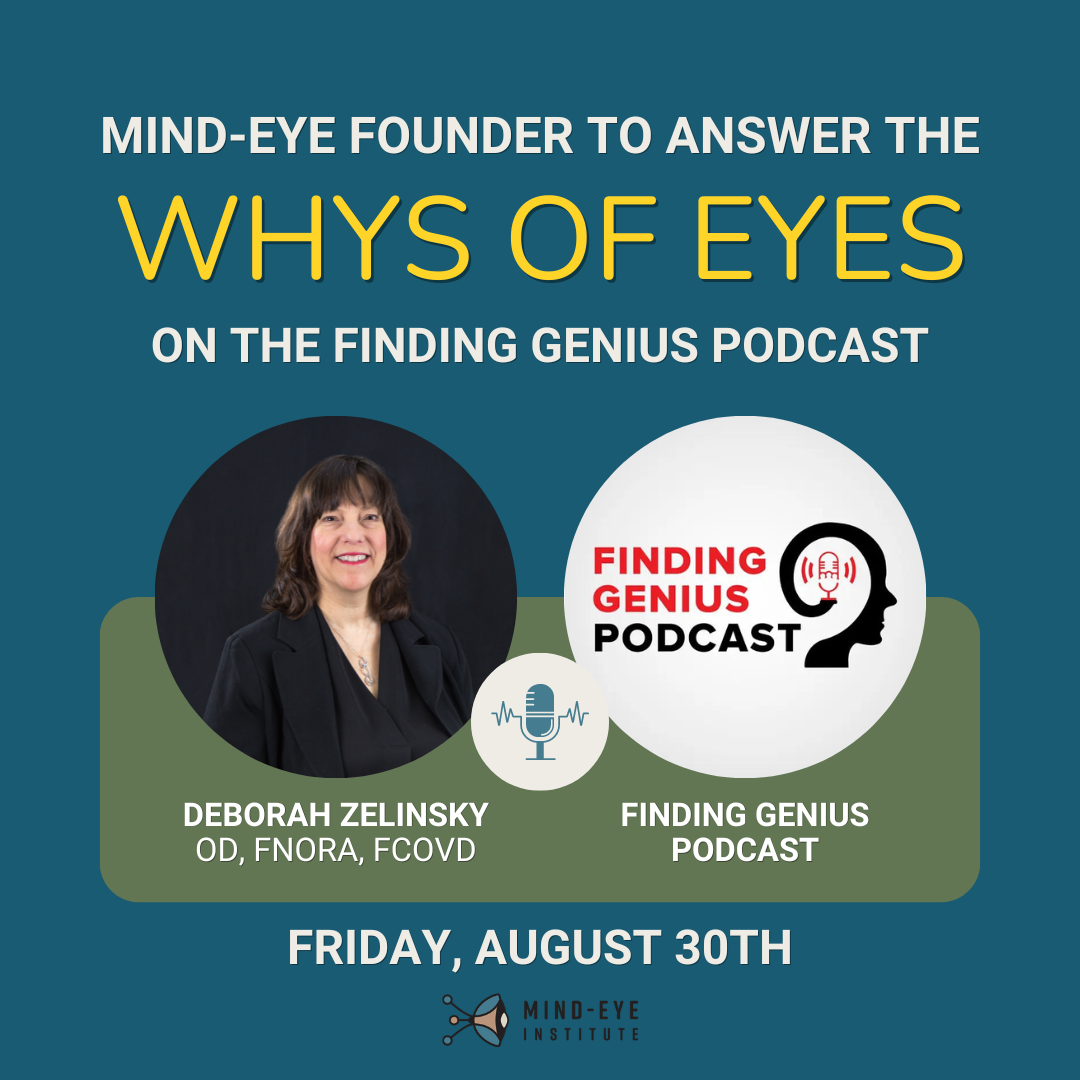Finding Genius Podcast Appearance Friday, August 30th
What is the latest behind the advanced science practiced by optometrists at the internationally noted Mind-Eye Institute? How can light aid patients’ recovery from brain injuries, strokes and other neurological disorders, or help them build better brains for learning? Why might optometrists become the first line of defense in detecting health problems early?
These questions and more will be answered during an August 30 podcast program featuring Deborah Zelinsky OD, founder of the Mind-Eye Institute and its executive director of research. The program will air online as part of the Finding Genius Podcast series.
About the Mind-Eye Institute
Dr. Zelinsky opened the Mind-Eye Institute in the north Chicago suburbs to make the latest optometric science discoveries and breakthroughs available and accessible to patients, emphasizing the tagline Connecting Optometry with Neuroscience. She has pioneered use of prescription lenses to stimulate the retina with variations of light in order to build better brains.
Her development of the unique, patented Z-Bell Test℠ allows her and the Mind-Eye team to prescribe lenses and use other advanced optometric interventions to help balance each patient’s processing of central and peripheral eyesight, while synchronizing integration between the patient’s auditory and visual sensory systems.
Beyond 20/20 Eyesight
“The 20/20 eye testing standard is more than 160 years old and does not take into account the evaluation of a person’s peripheral retinal processing or perceived auditory space– both of which are critical to leading a quality life,” Dr. Zelinsky says. “Traditional eye testing is still fine for the average person, but those with brain conditions require more.”
In fact, Dr. Zelinsky is leading a campaign to Leave 20/20 in the 20th Century and shift to a more updated assessment protocol that includes patient reactions to moving targets and overall awareness of surroundings from both sights and sounds.
Who Needs Advanced Testing?
Patients needing updated, advanced optometric testing include those diagnosed with a brain not functioning at its full potential due to
Autism or genetic mutations;
Undeveloped learning skills associated with dyslexia or attention problems like ADHD and ADD;
Neurological disorders caused by concussions, brain injury, stroke, and disease.
Retinal Insights and the Future of Optometry
Using brain mapping via the retina, optometric professionals are able to assess brains, rather than just eyes. That is because the retina is composed of brain tissue and plays a significant role in a person’s central nervous system. An ever-growing number of scientific studies show evidence that the health of a patient’s retina reflects the condition of the brain and body. The retina and optic nerve can be evaluated to find early signs of Alzheimer’s disease, Parkinson’s, diabetes, and schizophrenia, for example.
“Continuing advancements in understanding the role of retinal signaling as a significant component of the central nervous system may one day make optometrists the go-to professionals for the diagnosis and modulation of a variety of disorders. Such capabilities are only now emerging in a new scientific field called ‘oculomics,’” Dr. Zelinsky says.
“The ability to assess brain activity noninvasively – both inside and outside – puts optometrists at the forefront of an exciting future for all health care.”


